Key takeaways:
- A keen eye for detail, strong communication skills, and adaptability are essential skills for aspiring editors.
- Combining formal education with practical experience, such as internships and workshops, deepens understanding in the editing field.
- Building a diverse portfolio that showcases various writing styles enhances job prospects and reflects personal growth.
- Networking fosters valuable relationships and mentorship opportunities, enriching one’s editorial journey.
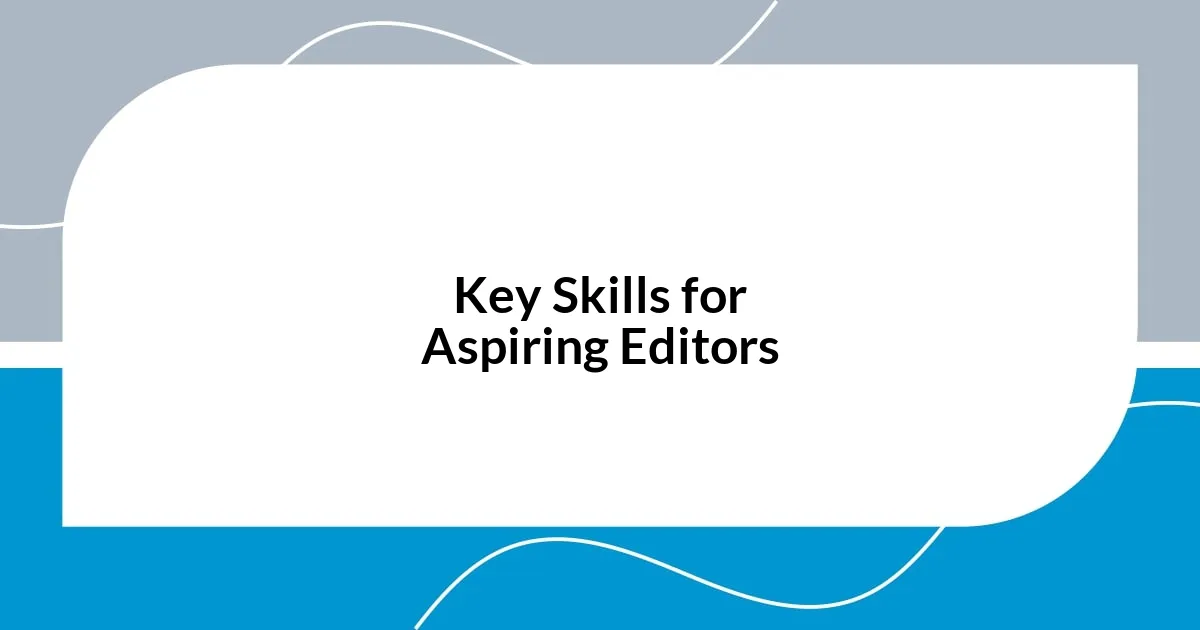
Key Skills for Aspiring Editors
One of the most vital skills for aspiring editors is a keen eye for detail. I remember the countless times I combed through manuscripts, hunting for typos and inconsistencies. It’s fascinating how a single misplaced comma can change the meaning of a sentence entirely, isn’t it? This precision not only enhances clarity but also builds trust with readers.
Moreover, strong communication skills are essential in this field. I’ve found that discussing revisions with writers can be challenging yet rewarding. When I first started, I struggled to convey my feedback without sounding overly critical. But with practice, I learned to frame my suggestions positively, which fostered a collaborative atmosphere—has that ever happened to you? Finding the right words can transform the entire editing process.
Finally, adaptability is a crucial trait in an editor’s toolkit. The publishing landscape constantly evolves, and what worked yesterday might not work today. I vividly recall a project where I had to pivot my editing style to cater to a younger audience. That experience taught me to stay open-minded and flexible. After all, embracing change not only sharpens one’s skills but also keeps the work fresh and exciting. What adaptations have you had to make in your own journey?
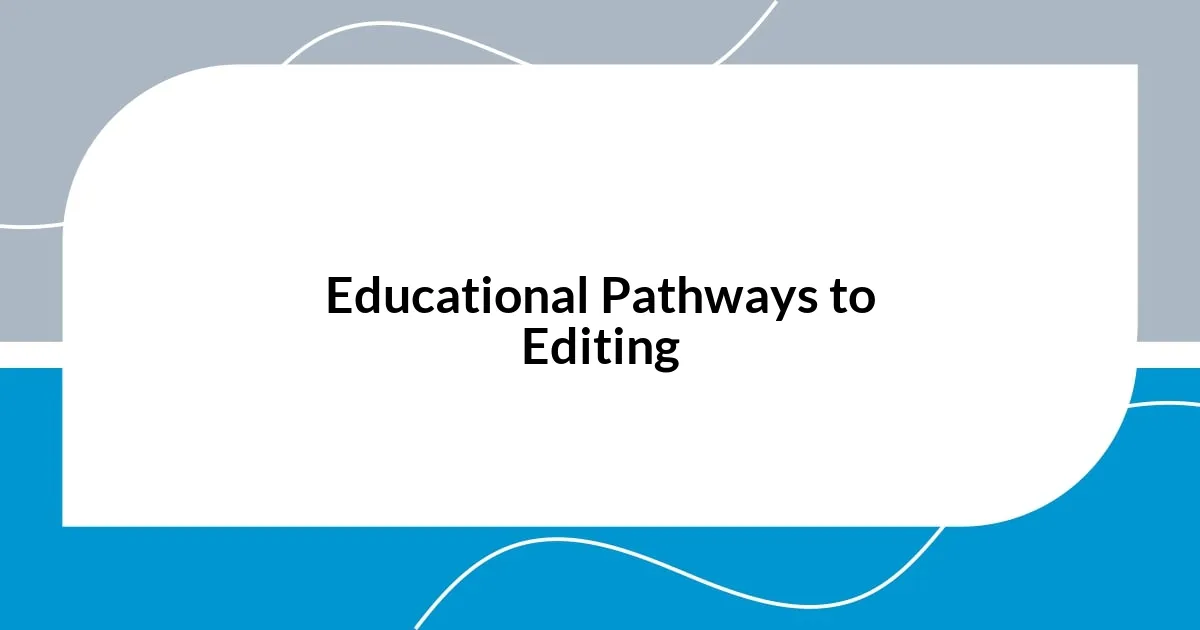
Educational Pathways to Editing
Educational pathways to becoming an editor are diverse and often involve a combination of formal education and hands-on experience. I remember the moment I realized that a degree in English or Communications could provide me with the foundational skills I neeeded, but it was my internships that truly shaped my understanding of editing. Nothing compares to the thrill of working on real publications and learning the ins and outs of the industry firsthand.
- Bachelor’s degree in English, Communications, or Journalism
- Internships at publishing houses or editorial firms
- Workshops or courses in editing and proofreading
- Networking events to connect with other industry professionals
- Online courses to stay updated on digital editing tools
In my experience, pursuing a combination of coursework and practical training has led to a richer understanding of the craft. For instance, while studying grammar rules in class was beneficial, it was during editorial meetings, surrounded by colleagues with various perspectives, where I truly grasped the significance of voice and tone. I often reflect on how those discussions not only honed my skills but also ignited my passion for storytelling.
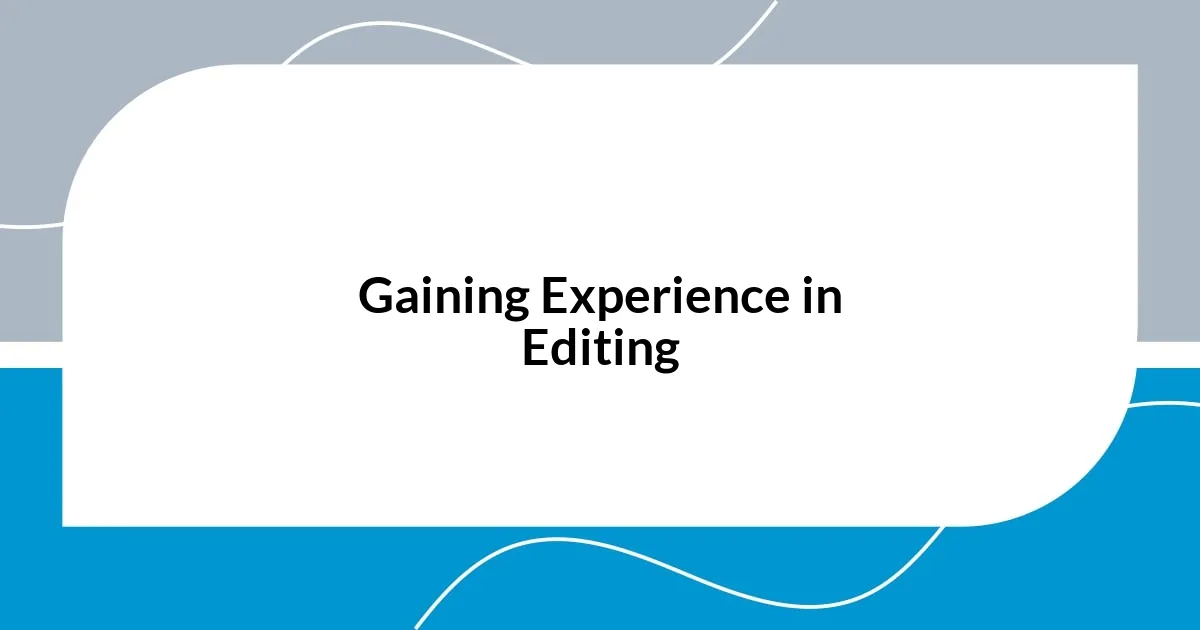
Gaining Experience in Editing
Gaining experience in editing often starts with real-world practice. When I first took on editing roles, I volunteered for a local newsletter. It was nerve-wracking at first, but I quickly learned that each article presented a unique challenge. Juggling deadlines while ensuring the clarity and flow of the content taught me more than any classroom ever could.
As time passed, I began to seek out freelance opportunities. Each project I tackled became a valuable lesson in managing diverse writing styles and adapting my edits accordingly. I often found myself excited to dive into new topics, which forced me to conduct thorough research. This experience not only bolstered my editing skills but also deepened my understanding of various subjects. Can you think of a time when you learned something significant while editing?
Networking has also played a critical role in my journey. Attending workshops and joining editing groups opened doors to mentorship. I remember a moment during a workshop when a seasoned editor offered me insight that reshaped my approach to critique. Her words reminded me that editing is less about correcting mistakes and more about enhancing the writer’s voice. Every connection I made helped me grow, and I advocate for seeking those opportunities whenever possible.
| Experience Type | Benefits |
|---|---|
| Volunteering | Hands-on practice and learning to manage deadlines. |
| Freelancing | Exposure to diverse writing styles and deep research. |
| Networking | Gaining mentorship and insights from experienced editors. |
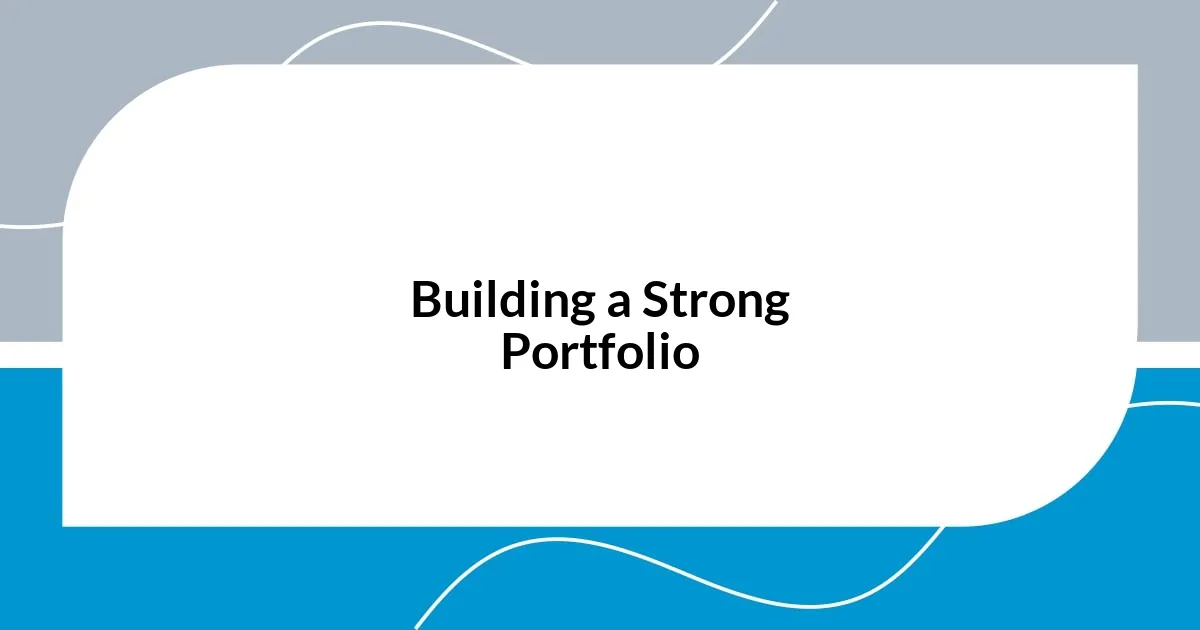
Building a Strong Portfolio
Building a strong portfolio is critical for anyone aspiring to be an editor. I remember when I started compiling my first portfolio; it felt daunting to decide what projects to include. I chose a mix of freelance articles, volunteer projects, and a few academic papers that showcased my editing skills and versatility. What struck me was how each piece told a part of my journey, demonstrating not only what I could do but also who I was as an editor.
As I continued to develop my portfolio, I realized it wasn’t just about the quantity of work but the quality and diversity. I made a point to include pieces that reflect different genres—from blog posts to academic articles—because potential clients and employers value editors who can adapt to various voices and styles. Have you ever thought about how your choices reflect your unique perspective? For me, arranging my work thoughtfully allowed me to tell my story and connect with my audience on a deeper level.
Another key aspect was seeking feedback from experienced editors. When I shared my portfolio with a mentor, she helped me see areas of improvement I hadn’t noticed before. One suggestion was to highlight not just the finished products but also the revisions I made along the way. This insight transformed my approach, giving life to the editing process itself. It made me realize that a portfolio isn’t merely a showcase; it’s an evolving testament to growth and learning, something I encourage every aspiring editor to embrace fully.
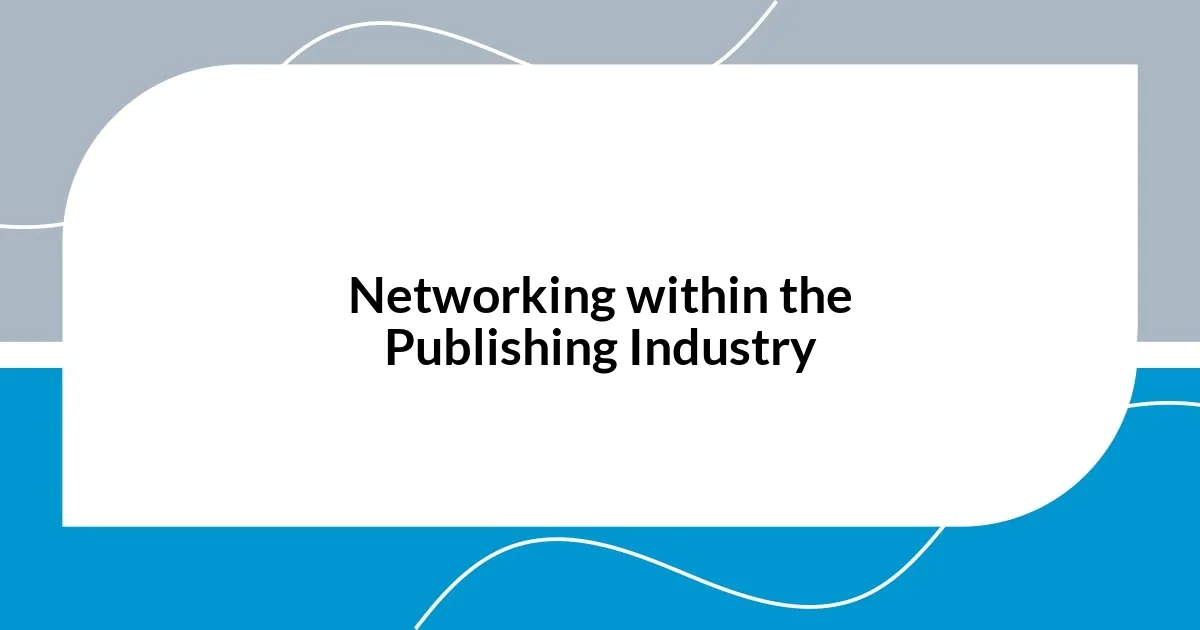
Networking within the Publishing Industry
Networking within the publishing industry has often led me to incredible opportunities and insightful experiences. I recall attending my first publishing conference, feeling a mix of excitement and nerves as I mingled with professionals I admired. Striking up conversations with authors and editors not only broadened my understanding of the industry but also helped me to find my voice in what can sometimes feel like an intimidating environment.
Over time, I’ve discovered that building genuine relationships is essential. I often think about a lunch I shared with a fellow editor who had a wealth of experience. We talked about challenges we faced and successes we celebrated. That exchange taught me the power of vulnerability and the importance of learning from others. Have you ever had a conversation that sparked a new idea or approach? I know I have, and those moments have been pivotal in shaping my editorial style.
Joining online forums and groups has also been a game-changer for me. Through platforms like LinkedIn and various editing communities, I’ve connected with like-minded individuals and exchanged ideas that have fueled my growth. One particular thread on an editing forum led me to a collaborative project that not only enhanced my skills but also resulted in long-lasting professional friendships. Those connections remind me that networking isn’t just about climbing the ladder; it’s about creating a supportive community that inspires us all.